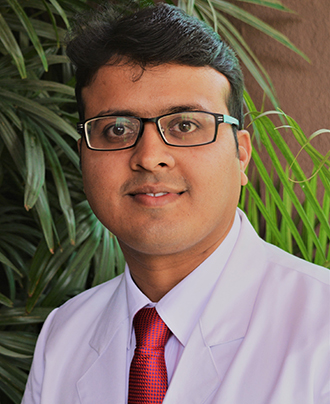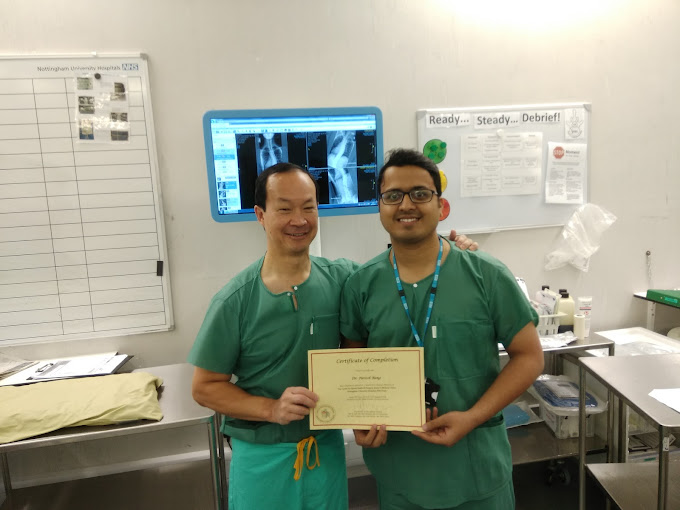Meet Our Doctor
Dr. Paresh Bang

Slip Disc Specialist In Nagpur

Slip Disc Specialist
They are also prescribed anti-inflammatory medications like non-steroidal anti-inflammatory medications or spinal epidural injections to relieve troubling symptoms. It is best to consult the specialist for a proper diagnosis of the condition and treatment options.
The symptoms may vary as per the position of a herniated disc and the size of the herniation. A patient may feel slight pain or no pain if the slipped disc doesn’t press a nerve. However, some common symptoms are:
Neck pain: A sharp pain is experienced in between shoulder blades and neck. The pain aggravates with sudden movements or uncomfortable position.
Numbness: Many people with slipped discs feel a tingling sensation or numbness in the areas closer to affected nerves.
Weakness: Muscles near the affected nerves weaken and make patients stumble or prone to accidents.
Leg pain: A patient may feel intense pain in the leg (thigh, buttocks, and calf) if a herniated disc is within the lower back.
Conservative treatment helps in modifying daily activities for avoiding movements, which cause pain. This way, a patient’s symptoms can be relieved within a few days or weeks.
Medications:
Over-the-counter pain medications: For mild to moderate pain, the doctor may prescribe over-the-counter pain medication like naproxen sodium (Aleve), ibuprofen (Advil, Mortin IB, etc.) and acetaminophen (Tylenol, others).
Muscle relaxers: It can be prescribed to patients if they experience muscle spasms.
Cortisone injections: If the patient’s pain does not improve with oral medicines, corticosteroid injections are prescribed to be injected into the area near the spinal nerves.
Opioids: Due to the significant side effects of opioids, as well as their potential for addiction, most doctors avoid prescribing them for slip disc treatment.
Therapy:A doctor may even suggest undergoing physical therapy to relieve the pain. With the help of physical therapists, patients are taught specific exercises and positions to reduce the pain of the slip disc.
Surgery:Some people with slip discs may need surgical treatment. A doctor may suggest surgery in case the conservative treatment fails to relieve specific symptoms after a few weeks, especially if a patient continues to experience:
- Difficulty in walking or standing
- Poorly controlled pain
- Weakness or numbness
- Bowel control or loss of bladder
Gender: Men usually have a higher risk of slip disc as compared to women.
Age: It is the most common risk factor that occurs in people between the ages -35 to 50.
Family history: Slip disc is even considered to have a hereditary tendency in a family line.
Physically demanding work, such as heavy lifting, pushing or pulling actions, could injure the disc.
Obesity: Overweight makes a person 12 times more likely to get a slip disc after a microdiscectomy surgery.
